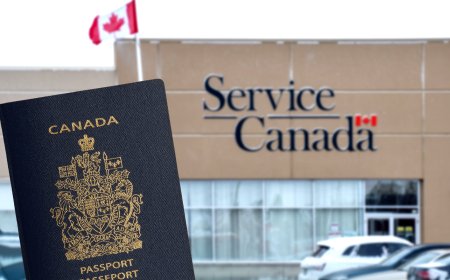How Canada’s 2024 Work Permit Changes Could Impact Your Plans !
Discover the key changes to LMIA-exempt work permits in Canada for 2024, including visa requirements, spousal permits, new programs, and policy updates.

The Canadian government introduced significant changes to LMIA-exempt work permits in 2024, impacting foreign nationals seeking employment in Canada under specific programs. This review highlights the key updates, organized for clarity and easy reference.
Key Updates in 2024
The following changes reflect shifts in policy affecting LMIA-exempt work permits:
1. Visa Requirements for Mexican Nationals
Effective Date: February 29, 2024
Mexican nationals now require a Temporary Resident Visa (TRV) to enter Canada. Tightened Electronic Travel Authorization (eTA) requirements include:
- Transiting through or flying into Canada for stays under six months.
- Holding a valid U.S. nonimmigrant visa or having held a Canadian visitor visa in the past decade.
These measures aim to address increased asylum claims.
2. Restrictions on Spousal Open Work Permits (SOWPs)
Effective Date: March 19, 2024
Eligibility for SOWPs was revoked for spouses of students in most college and university bachelor’s programs. Exceptions include programs such as Medicine, Nursing, Engineering, and others. Further restrictions for master’s and temporary workers’ spouses are pending implementation.
3. Innovation Stream Work Permit
Effective Date: April 15, 2024
A new closed LMIA-exempt permit was introduced for high-skilled employees of select companies under the Global Hypergrowth Project. Eligible employers include Clio, Ada Support Inc., and others. This program offers permits valid for up to five years.
4. Open Work Permits for PNP Nominee Candidates
Effective Date: August 11, 2024
Provincial Nominee Program (PNP) candidates can apply for open work permits under specific conditions, such as holding a valid support letter from their province. This temporary policy expired on December 31, 2024.
5. End of Pandemic-Era Visitor Work Permit Policy
Effective Date: August 28, 2024
The temporary policy allowing visitors to apply for work permits from within Canada ended. This policy had been a response to COVID-19 challenges, enabling stranded visitors to work legally while addressing labor shortages.
6. Updated Intra-Company Transferee (ICT) Guidelines
Effective Date: October 3, 2024
New instructions clarified requirements for ICT work permits, emphasizing that applicants must be employees of multinational corporations with specialized knowledge. Officers were directed to ensure these permits are not used for general workforce transfers.
7. TR to PR Pathway Extension
Effective Date: December 17, 2024
The temporary public policy supporting open work permits for Temporary Resident to Permanent Resident (TR to PR) pathway applicants was extended until December 31, 2026.
8. Ban on Flagpoling
Effective Date: December 23, 2024
Flagpoling, the practice of seeking same-day immigration processing at ports of entry, is no longer permitted for most temporary residents. Exceptions apply to U.S. citizens, certain free-trade agreement professionals, and specific truck drivers.
Looking Ahead: Net New Work Permit Targets
The Immigration Levels Plan for 2025–2027 introduced targets for new International Mobility Program (IMP) work permits:
- 2025: 285,750
- 2026: 128,700
- 2027: 155,000
These updates reflect Canada’s evolving immigration priorities, balancing economic growth, labor market needs, and policy integrity.
What's Your Reaction?
 Like
0
Like
0
 Dislike
0
Dislike
0
 Love
0
Love
0
 Funny
0
Funny
0
 Angry
0
Angry
0
 Sad
0
Sad
0
 Wow
0
Wow
0






































































